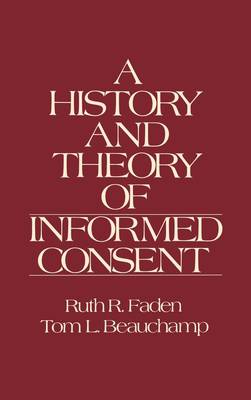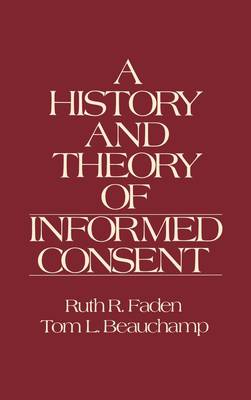
- Afhalen na 1 uur in een winkel met voorraad
- Gratis thuislevering in België vanaf € 30
- Ruim aanbod met 7 miljoen producten
- Afhalen na 1 uur in een winkel met voorraad
- Gratis thuislevering in België vanaf € 30
- Ruim aanbod met 7 miljoen producten
Zoeken
€ 186,95
+ 373 punten
Omschrijving
Clearly argued and written in nontechnical language, this book provides a definitive account of informed consent. It begins by presenting the analytic framework for reasoning about informed consent found in moral philosophy and law. The authors then review and interpret the history of informed consent in clinical medicine, research, and the courts. They argue that respect for autonomy has had a central role in the justification and function of informed consent requirements. Then they present a theory of the nature of informed consent that is based on an appreciation of its historical roots. An important contribution to a topic of current legal and ethical debate, this study is accessible to everyone with a serious interest in biomedical ethics, including physicians, philosophers, policy makers, religious ethicists, lawyers, and psychologists. This timely analysis makes a significant contribution to the debate about the rights of patients and subjects.
Specificaties
Betrokkenen
- Auteur(s):
- Uitgeverij:
Inhoud
- Aantal bladzijden:
- 408
- Taal:
- Engels
Eigenschappen
- Productcode (EAN):
- 9780195036862
- Verschijningsdatum:
- 27/02/1986
- Uitvoering:
- Hardcover
- Formaat:
- Genaaid
- Afmetingen:
- 157 mm x 231 mm
- Gewicht:
- 771 g

Alleen bij Standaard Boekhandel
+ 373 punten op je klantenkaart van Standaard Boekhandel
Beoordelingen
We publiceren alleen reviews die voldoen aan de voorwaarden voor reviews. Bekijk onze voorwaarden voor reviews.











